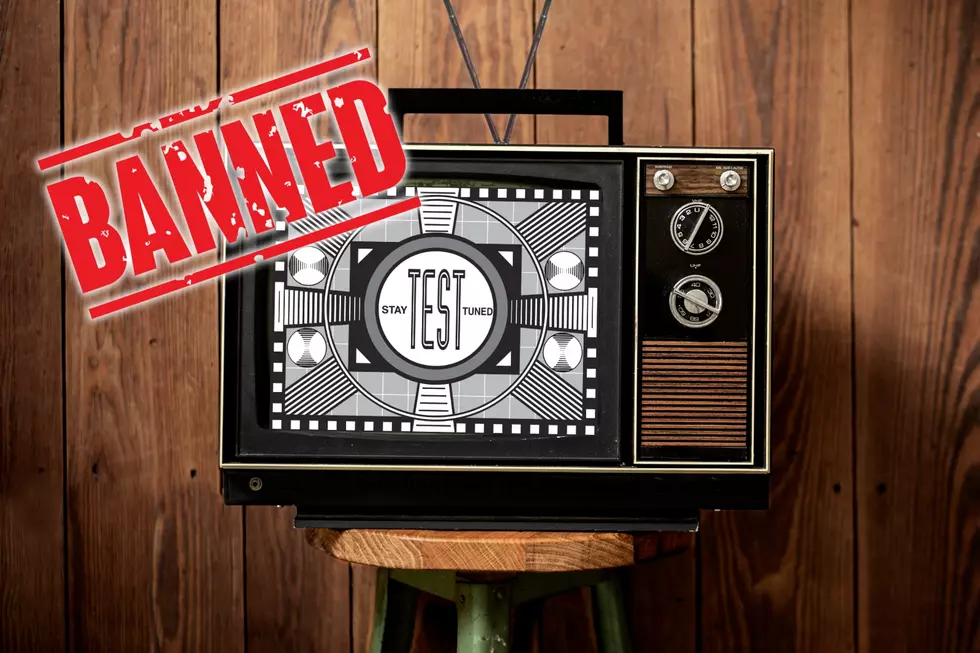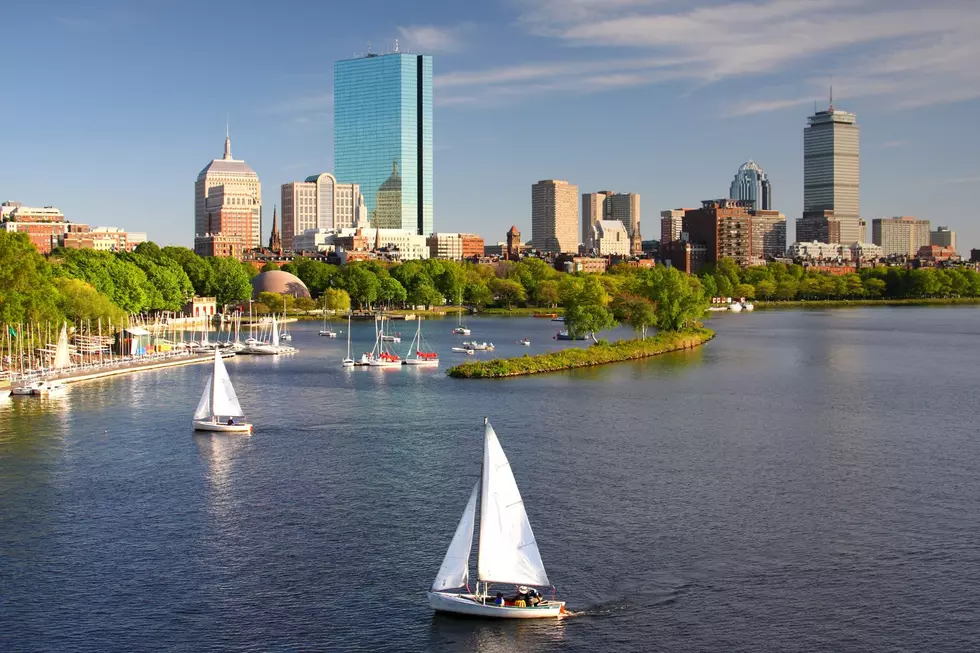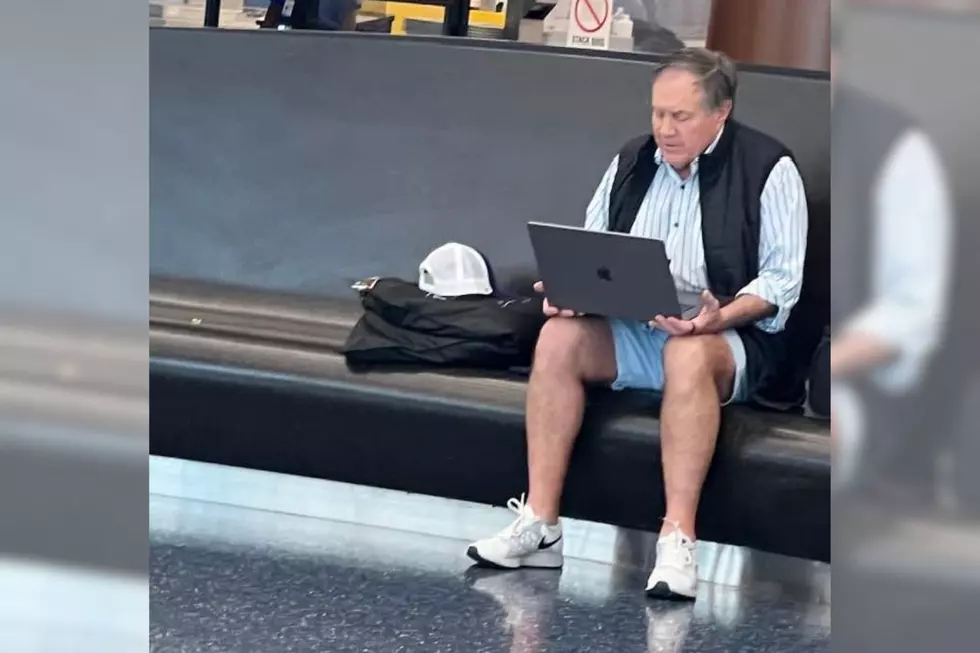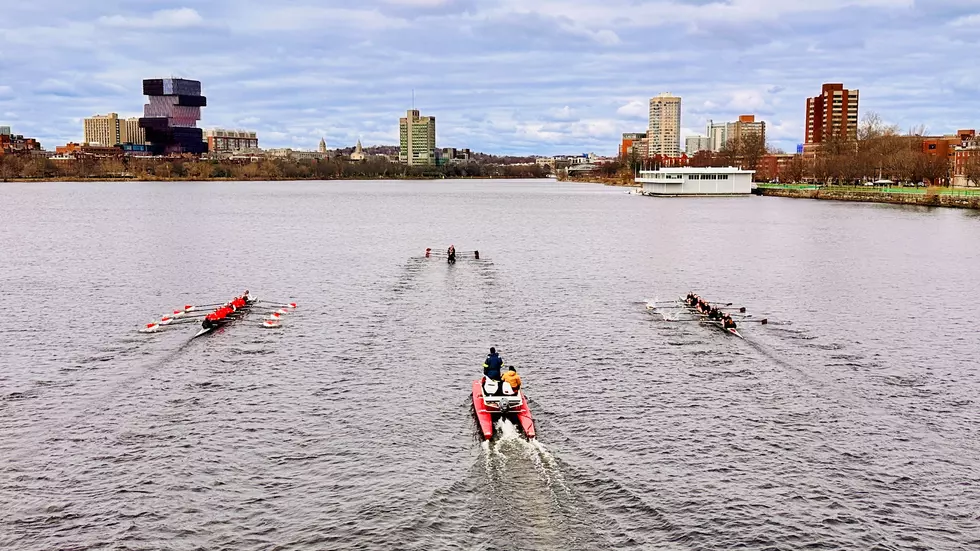
Boston Banned This Classic ’70s Sitcom
One of the most beloved television sitcoms of the 1970s didn’t initially air in Boston because it was considered too “controversial.”
You might expect that type of reaction to, say, All in the Family or Good Times, or maybe even M*A*S*H*.
You would not expect it from a harmless comedy like Welcome Back, Kotter.

Of course, we know that now. Four seasons (1975-1979) of watching Mr. Kotter and the Sweathogs showed us that it was nothing but goofy, Marx Brothers-inspired fun.
Groucho Marx even once visited the set, intending to make a cameo on the program, but it was felt he was too ill and frail to film.
Yet before Welcome Back, Kotter premiered on September 9, 1975, Boston’s ABC affiliate WCVB decided not to air it.
READ MORE: When Norman Lear Took a Boston-Made TV Show National
One of the things touted about Welcome Back, Kotter before its premiere was that it would feature a multi-ethnic cast with characters such as African American Freddy “Boom Boom” Washington, Puerto Rican Jew Juan Epstein, Italian American Vinnie Barbarino, and of course, the titular Gabe Kotter, who was also Jewish.
The intention was to reflect the childhood neighborhood of star Gabe Kaplan, with stories of his fellow classmates that always elicited big laughs in his standup comedy routine.
According to a 1975 newspaper article, WCVB didn’t want to air the show “because its cast of non-scholastic high schoolers might have an unhealthy influence on local students,” meaning the argument was that a show about slacker students might inspire students to become slackers.
However, the real story was likely because of Boston’s racial problems in its public schools during that time period as court-ordered desegregation was in place, including busing inner-city Black students to more affluent white school districts.
Numerous protests and incidents of violence had sprung up as a result of these conflicts, and WCVB was probably afraid that airing a show featuring an integrated classroom might only heighten tensions.
Welcome Back, Kotter was pretty much a ratings success right out of the gate; the same article cites Kotter, Phyllis and Starsky & Hutch as the only three new shows in the 1975 season to make the Top 20.
According to UltimateClassicRock.com, the show was in the Top 10 after airing its first six episodes.
It certainly didn't hurt that it had one of the greatest TV theme songs of all time:
Meanwhile, Boston’s ban on Welcome Back, Kotter only lasted five episodes; its rating success and the fact that the show was nothing more than goofy fun with a few moral lessons thrown in led to WCVB putting it on the schedule.
Welcome Back, Kotter also went on to be successful in Boston in syndication after its original run, spending many years in the afternoon/evening lineup of WLVI 56.
Welcome Back, Kotter isn’t the only thing that was banned in Boston; in fact, “Banned in Boston” became a bit of a catchphrase considering the list of works that were banned in the city at some point or another.
Classic books like Walt Whitman’s Leaves of Grass, Ernest Hemingway’s The Sun Also Rises, William Burrough’s Naked Lunch and Elmer Gantry by Sinclair Lewis were banned.
So were songs such as “Wake Up Little Susie” by the Everly Brothers (because we don’t know exactly what they were doing before they fell asleep, apparently) and “Beans in My Ears,” a 1964 song by The Serendipity Singers that was banned in Boston because doctors claimed it was leading to children actually placing beans in their ears.
Let’s hope TikTok doesn’t pick up on that song and turn it into a viral challenge.
Top 200 '70s Songs
Gallery Credit: UCR Staff
More From WBSM-AM/AM 1420









